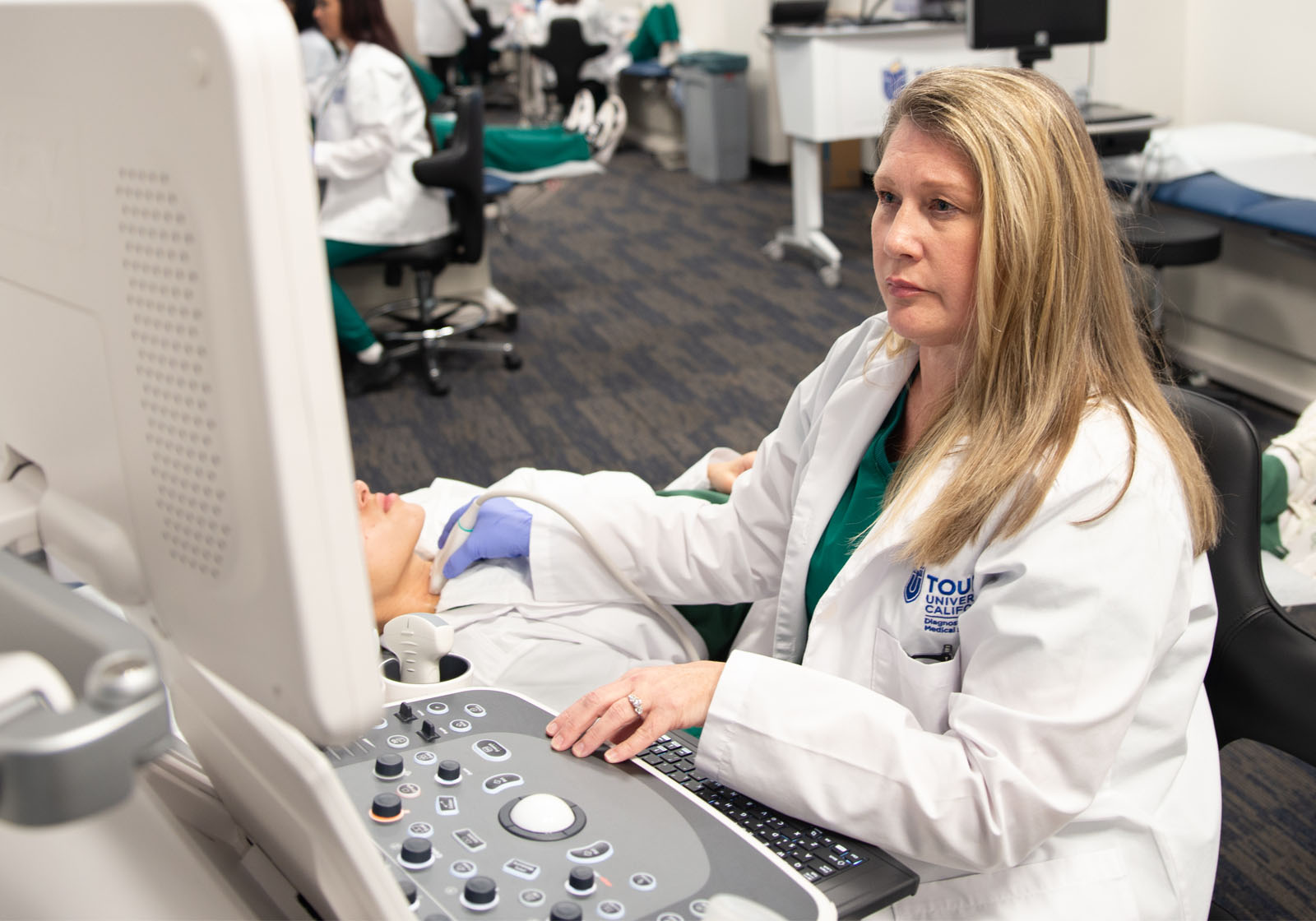
Admissions
Technical Standards
Students admitted to the Diagnostic Medical Sonography program must meet the following technical standards, with or without reasonable accommodations, to ensure success in academic and clinical settings and to safeguard patient care.
- Cognitive & Intellectual Abilities
- Acquire, interpret, and integrate information from lectures, labs, textbooks, and patient records.
- Analyze sonographic images, differentiate normal and abnormal findings, and apply judgment to protocol selection.
- Prioritize tasks, exercise sound judgment, and respond appropriately under time constraints or in emergent settings.
- Communication Skills
- Communicate clearly and sensitively, verbally and nonverbally, with patients, families, peers, instructors, and other healthcare team members.
- Elicit relevant medical and patient history, explain procedures, and provide patient education in terms understandable to individuals of varying backgrounds.
- Accurately document findings, maintain records, and relay pertinent information in compliance with HIPAA and institutional policies.
- Motor & Physical Abilities
- Execute fine and gross motor tasks: operate ultrasound transducers, adjust controls, manipulate imaging equipment, and assist in patient positioning.
- Sustain physical endurance: stand, walk, bend, and maintain scanning hand/arm positions for extended periods.
- Lift, move, and properly position patients or assist with transfers, as safe patient handling allows.
- Demonstrate adequate visual acuity, depth perception, and hand–eye coordination to interpret detail in sonographic images and clinical data.
- Hear and respond to auditory cues, alarms, instrument signals, and verbal instructions essential to patient safety.
- Behavioral, Interpersonal & Emotional Stability
- Maintain professional composure and adaptability under stress, in dynamic clinical environments, and while caring for patients with varying conditions.
- Demonstrate reliability, responsibility, compassion, integrity, and respect in interacting with patients, peers, and instructors.
- Show sensitivity to diverse patient populations and respect for confidentiality and patient rights.
- Self-monitor for signs of fatigue or emotional strain, taking steps to maintain patient safety and quality of care.
- Ethical & Professional Conduct
- Abide by legal, regulatory, and institutional policies governing patient privacy, consent, and scope of practice (e.g. HIPAA, facility protocols).
- Practice within one’s level of competence, seeking supervision or referral when encountering unfamiliar findings or procedures.
- Uphold professional ethics in all aspects, avoiding misconduct, maintaining accountability, and acting as a patient advocate.
- Engage in lifelong learning, maintain competence, and adapt to evolving technology and standards in sonography.
